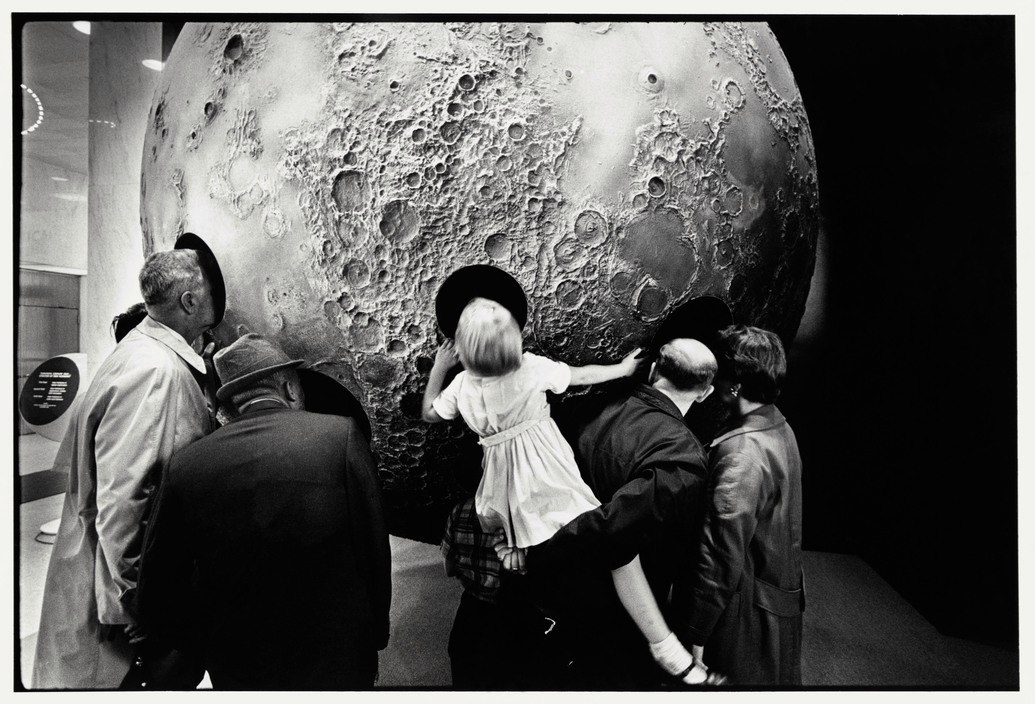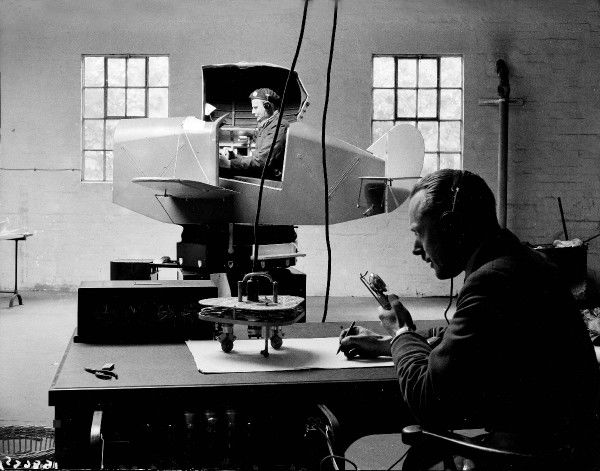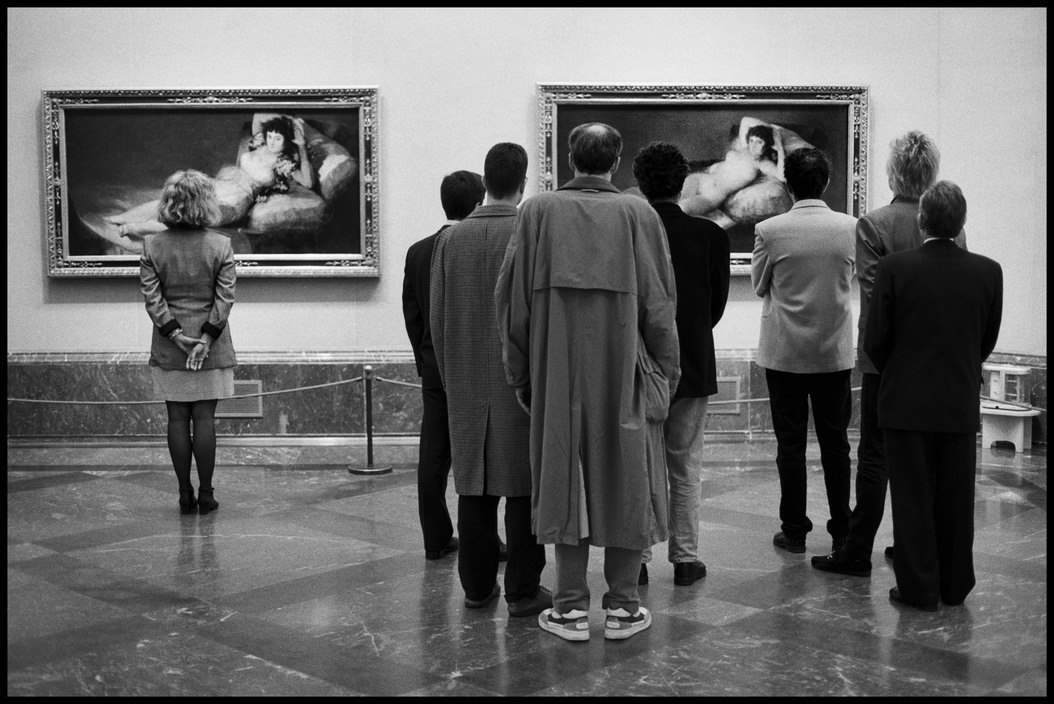Broaden your horizons, Holmes! Or why physicists have a violin and culinary skills

Watson - about Holmes:
His ignorance was no less striking than his erudition. About modern literature, philosophy and politics, he apparently did not know almost anything. ... However, my amazement reached its apogee when I accidentally discovered that he was not familiar with Copernicus’s theory and did not know how the Solar System worked. But don't know about the solar system! ”I protested. “Why the hell did she give up to me?” He interrupted impatiently. “You say that we are turning around the sun. But if we were spinning around the moon, it would absolutely not change anything for me or for my work. ”
Sir Arthur Conan Doyle,“ Etude in purple hues ”
Dr. Watson (or, in Nashin, Watson) sincerely wondered how the great detective Sherlock Holmes was not interested in anything other than his work. After Holmes, without any embarrassment, announced that he had seen Copernicus in his grave with his heliocentric system of the world, the amazed Watson descended into a chair and thought out a list of what Holmes more or less understood. The list looked like this:
- There is no knowledge in the field of literature.
- There is no philosophy.
- There is no astronomy.
- Policies are minimal.
- Botanical sketchy. Perfectly familiar with the properties of belladonna, opium and poisons in general. Full layman in gardening.
- Knowledge in the field of geology is specific, but limited. At first glance, different soil types are distinguished from each other. After walking, he showed me splashes of dirt on the trousers and, by their color and consistency, determined from what part of London they were.
- Knowledge of chemistry is solid.
- Anatomy accurate, but unsystematic.
- Criminal literature is huge. He knows, it seems, the details of all the high-profile crimes of our century.
- He plays the violin well.
- Professionally fences and boxing.
- Well versed in British law from a practical point of view.
Watson this set of knowledge seemed strange and erratic. Apparently, at that time he still didn’t know his comrade as well as we now know, people who would arrest the detective who had read all the adventures of the detective and had looked at more than one of their versions. A closer look at this list can be understood that Holmes was only interested in what somehow affected his work. Anything that could help him unravel the tangle of crime. And any little thing could help from the trace of dirt on the pants to the symptoms of poisoning with poison. Sherlock was not interested in everything else - he believed that you shouldn’t bother with extra information, because of which you may have to sacrifice a place for really necessary knowledge (it would be interesting to know how brain specialists can comment on this).
Holmes was not so wrong. Even the ancient Greeks feared an indiscriminate accumulation of knowledge, and some scholars of antiquity speak of the "radiant ignorance" inherent in the great philosophers. Indeed, the Holmes method could well fit young professionals as a guide to immersion in their craft: on the one hand, he teaches us to look at the profession extensively and study related fields of knowledge, on the other - to study only those aspects that can be useful directly in solving practical problems.
On the other hand, such a focus greatly narrows the window of opportunity, which opens wide before those who have knowledge in different disciplines.
From the life of polymers
Human knowledge has changed throughout history. At the dawn of modern culture, during the time of the protroansessance, the main sciences were considered logic and philosophy. And this is not surprising: William Ockham, Roger Bacon and other scientists monks worked to create a foundation of principles and methods on which science was built, which in our current understanding simply did not exist at that time. In the first centuries after the foundation of science, mankind constantly made new discoveries. And it was relatively easy to make them - it was necessary to “only” get interested and ask the right questions. If already in 2012–13, thousands of people worked on the discovery of the Higgs boson, back in 1911 Rutherford discovered the atomic nucleus alone. Due to the fact that the unknown was infinitely many Some scientists could not concentrate on any one area of knowledge and applied scientific methods in completely different disciplines. Such researchers began to be called "polymates".
Reading the biographies of some polymers, you wonder the breadth of the horizons that these people possessed. Here, for example, Mikhail Lomonosov: a physicist, he is a chemist, he is a geologist, he is a geographer, he is a poet - in general, and Sweden, and a reaper, and a igrets on a dude. And, probably, there is a temptation to think: well, I’m doing, they say, your polymate all over the world - but it’s not equally as successful? Well, if Goethe would only write poems, he would not open the maxillary bone in humans and introduce the concept of plant morphology, and if Nabokov was engaged only in literature, he would not publish several chess problems and would not make a discovery in the field of learning. butterflies. Would humanity suffer greatly from this? Let everyone decide for himself ...
The average reader is unlikely to want to be at the same time a competent developer, a successful meteorologist and an ambitious choreographer (I definitely don’t). We, ordinary people, are not polymats, and most of us are not even scientists. Being a universal genius is already out of date (the spirit of the time is not the same), and it is impossible, because knowledge has become so deep and cumbersome. So why should we go beyond the comfortable limits of our main craft?
To think by analogies and to benefit from the synthesis of knowledge
I am convinced that knowledge in completely different areas can overlap and complement each other. A person who has knowledge in some additional area can apply them in his main activity. Images from other areas of knowledge can push on non-standard solutions to problems in their own.
My favorite example about the application of analogies is about one smart guy from the American province. Edwin Link lived in the town of Binghamton, where in 1910, the year his family moved there, there were about 50 thousand people. The city was the epitome of one-story America at the beginning of the last century, with immigrant - Italian, Irish and Polish - quarters, with local factories and even the head office of the regional Ku Klux Klan cell. Edwina's father owned the factory Link Piano and Organ Company, which was engaged in the production of organs and piano. And Edwin himself dreamed of becoming a pilot; he, like Holmes, thoroughly studied everything connected with the desired profession, but the problem was that training for a pilot was prohibitively expensive. And when Link realized that he couldn’t go ahead and gain access to the aircraft using the standard way, He decided to learn how to fly a plane at home. And then he remembered how from childhood he had been digging into pumps, valves and bellows at his father’s factory, studying the structure of a musical organ. It turned out that the body, possibly the most complex human invention for many centuries, can continue its pedigree in a rather unusual way - some of its components were perfectly suited for creating a flight simulator.
The main component of the body is a complex mechanical system of injection and retention of air pressure, which was adopted by Link during the construction of the simulator. The model aircraft could spin 180 degrees and simulate movement in three-dimensional space. The simulator reacted to the pilot's control device and gave accurate readings on the connected instruments. The design even allowed to simulate flights "blindly." It is worth noting that Link patented his device and founded the company in the midst of the Great Depression. Now the market of flight simulators is a multi-billion dollar business, according to Wikipedia .

Edwin Link made a successful transplant to a donor organ simulator from a musical organ.
There are many examples of how knowledge from one area migrated to another. Galileo discovered the satellites of Jupiter, in part because he understood painting and knew the laws of the distribution of light and shadow. And Freud came to the discovery of the Oedipus complex (sexual attraction to the parent of the opposite sex) thanks to his knowledge of archeology and ancient Greek myths. I also heard that in some universities, medical students are specially led by art museums to train skills in medical semiotics — that is, they learned how to diagnose people by symptoms of disease, in this case, by signs of there may be, for example, bags under the eyes, swollen fingers, complexion or nails or wrinkles.

Not at all what you might think. On the right - student dermatologists practice in medical semiotics, on the left - a fashion historian. Author : Elliott Erwitt
But the stories are familiar examples not only of the synthesis of knowledge from different fields, but also of discoveries made through the use of analogies. Some authors in the field of strategies and innovations call the method of analogies one of the main tools for creating truly breakthrough innovations. Nathan Furr and Jeffrey H. Dyer in his article " When Your Moon Shots Don't Take Off"for Harvard Business Review, they give an example of the Nobel laureate Werner Heisenberg, who, walking in the evening along the lantern-lit avenue of the Copenhagen park, made the most important discovery related to the nature of energy: the man who appeared in the light of the lantern, now disappearing in the darkness, who walked towards the scientist, prompted his idea, electrons, having a much smaller mass than this man, are also able to behave in a similar way when they do not interact with anything. This thought prompted him to be fundamental to quantum physics "when uncertainty principle.
In IT, an example of the use of analogies from other areas can be called evolutionary modeling, which was inspired by the theory of evolution. Needless to say that the world of IT-technologies in general is solid metaphors, be it ports, Docker with its containers, dictionaries, networks and much, much more.
To take a breather, seek dispersed attention and more fully realize oneself
Life without music for me is unimaginable.
Albert Einstein
As we know from the notes of the same Dr. Watson, Sherlock Holmes played the violin in his spare time, and, apparently, quite well. It is not known whether he simply liked the sound of the violin, however, as we have already seen, Holmes did nothing for nothing.
One way or another, however, the violin music captivated at least one more genius - a man of the century, Albert Einstein. Einstein made musical pauses, trying to find a solution for a complex physical problem. His son, Hans Albert, recalled: “Whenever he felt that he had reached a dead end or had encountered a professional difficulty, he sought refuge in music. It usually solved all the problems. ”
Most likely, if you wish, you can find some studies that prove the ability of music to stimulate the brain. It is even possible that it is the violin that best of all puts the head in order (it would again be interesting to hear experts on the study of the brain). However, I am inclined to think that it’s also a matter of the fact that engaging in outside interests (for example, playing music for a scientist or detective) helps to achieve what some researchers - for example, Barbara Oakleyfrom Canadian University McMaster or the same writer Eric Weiner - called "diffuse" or "diffuse attention." Try to remember: surely you have often had this (especially if you are a developer) that you sit all day, like a damn thing, in front of a computer and you cannot solve a problem. If you close your laptop, get up and go for a walk, then suddenly sensible thoughts appear from somewhere. They might as well overtake you in the shower, during cleaning or before going to bed (they never forced themselves to open their eyes, turn on the phone and write down thoughts so that they would not “wipe out” during sleep?). I think such discoveries have happened to many of you.
The brain can process information in two modes, Oakley says. In a focused state, the brain concentrates on a specific problem. In this state, we sit up to the holes in the jeans, until we fool over the long working day, trying to solve some problem. However, if we digress and do something else, we get the opportunity, as it were, to look at the problem from a different angle - as if letting it "settle". This regime is called “scattered”, and it is extremely important for learning something new or solving complex problems.
In the end, doing a second activity helps a person to more fully reveal himself and take a break from his main occupation. Cosmonaut Alexei Leonov - the one who first went into outer space in 1965 - paints pictures in his spare time, and his American colleague Chris Hadfield sings "Space Oddity", records musical albums and gives master classes. I'm not talking about the many celebrities who in addition to the main activity are engaged in charity or the restaurant business.

Picture by Alexey Leonov
Chris Hadfield - about space longing
However, the question arises: what to do to those who are interested in nothing but work? Those who were not convinced by my argument that knowledge must be synthesized in order to be able to “read between the lines”?
See the benefits in the new occupation / knowledge
The simplest and most obvious incentive for self-development is to make your life better. Get a bigger salary or find a new source of income. Deserve a good professional reputation. Feel your importance and competence. Just imagine your current position, and the one you can achieve if you master a new knowledge or skill - and then it will be much easier to start learning. New skill or knowledge can be anything: from a new programming language and the ability to read the interlocutor's emotions and negotiate to an understanding of the work of world markets.
This method works for those knowledge that, most likely, one way or another relate to your main profession. But as we have already figured out earlier, it is sometimes useful to find out something completely different, which seems to have nothing to do with your line of business. Something that can “break patterns”. For such a case, I can only give one piece of advice.
Look at the world through the eyes of a child
Try to put to sleep your inner skeptic / cynic / melancholic / just a busy person (underline) and - forgive me for vulgarity and infantilism - look at the world with wide eyes. I believe that each of you, in addition to his profession, can find in him an occupation or hobby that would make your pulse beat more often. Why am I talking about the eyes of a child - because many of us were real polymates in childhood. Well, which of us did not read encyclopedias in the spirit of "Everything about everything"? As an adult, we have nothing to be interested in all in a row, otherwise we risk becoming a glutton on the part of knowledge - a trap into which Sherlock Holmes was afraid to fall. But sometimes it is necessary to expand your erudition simply in order to “shake up” your picture of the world a little.
What can you learn from all this
Sherlock Holmes is the image of a true professional, to which each of us should strive. He focuses on his craft and considers it in a broad way, paying a lot of attention to related areas, knowledge in which could directly help the main lesson. Everything that Holmes did had a meaning, and it was absolutely pragmatic. Learning something new is always difficult - you need to make a big effort over yourself and be able to do races at marathon distances to start doing something that can take a lot of time and effort, but if you draw yourself a picture of the future for yourself, then the difference taking yourself to the present can be a good incentive for self-development.
However, the example of several inventions and discoveries of world history shows us that sometimes we need to go really far beyond the scope of our profession in order to achieve exceptional success in it. Or at least just have a safe haven where you can always take a break, gain strength or look at the problem from a different angle.
Of course, I do not call to become a professional in two or more specialties at once. I just assume that many of us would be interested in doing something else besides the main work, even as a hobby. And I also believe that in the days of the Internet, erudition did not become less important - perhaps, on the contrary, only more. And it would be foolish to live without noticing how much interesting things can be found beyond the cozy limits of familiar work.
Wait a minute An attentive reader will ask: what does the culinary skills of the physicists stated in the title mean? Honestly, nothing to do with it. Well, that is, how ... In general, astrophysicists use the names of several Italian dishes to describe different layers of neutron stars. They call this concept: nuclear paste . In short, the different layers of such stars resemble in structure some flour products of Italian cuisine: lasagna, spaghetti and gnocchi. I can not judge, but they say, these metaphors fairly accurately describe the possible structure of neutron stars. So much for polymatism.

Do not rush to conclusions. This is astrophysics in a public dispute. Test your hypothesis on teeth.
